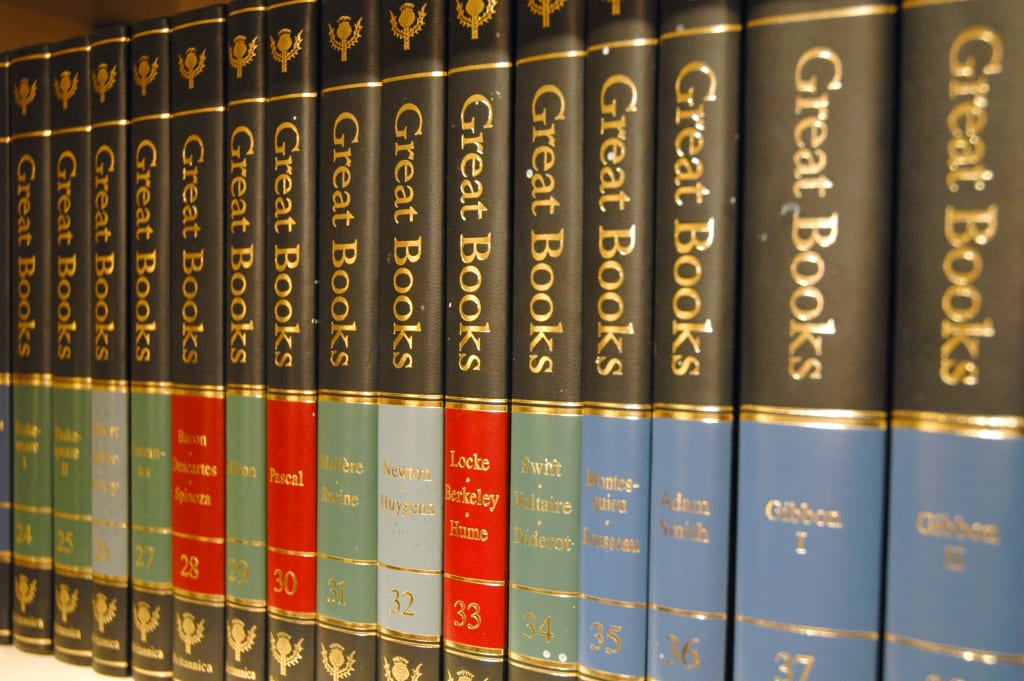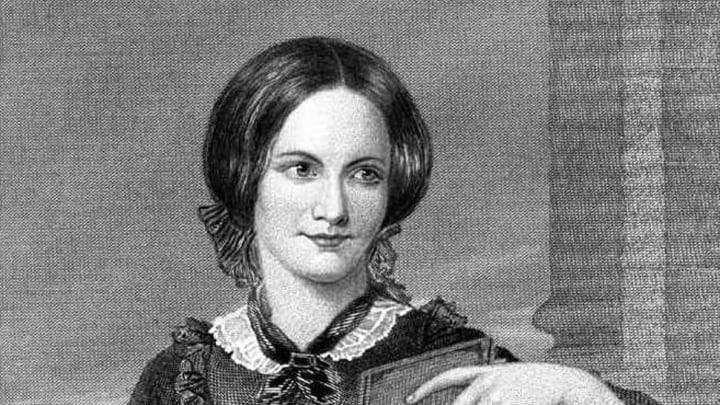
I love literature, as we all already know. But the one thing I love most of all is sharing my love for literature with everyone else by giving people recommendations and asking for recommendations from others. I like reading new and exciting things that I haven't read before as well as reading around and deeply into my favourite genres. At the time this article was written, I was going through a phase of reading biographies of classic Hollywood actors and actresses.
If you have a recommendation for me, do not hesitate to send it over because I love talking about books with people! Also, before you ask, I only ever list books I've read. I want to make sure I'm giving you content from my heart.
Another thing I want to mention—this list consists of a mixture of old and new, a blend of different genres and not just the normal, "classic" literature you always hear about. There's much more—I want to give you something a little bit more personal and make sure you're getting a range of reading from me.
So, without further introduction, I want to make it through a list of 30 books I think you should read before you die.
(I will be putting a * next to my favourite ones and talking briefly about some of them and why they are important to read)
1-10

1. The Picture of Dorian Gray by Oscar Wilde*
2. Interview with the Vampire by Anne Rice*
3. Cloud Atlas by David Mitchell*
If you're having trouble understanding a very postmodern style of writing in terms of the structure (postmodern structures normally change the order of time in hopes of creating a story based on how much information the reader knows at any one given time, controlling the characters, pace and ideas of the story), then I would highly recommend trying Cloud Atlas to begin with. Read the book and then watch the film if you haven't watched the film already. I personally love this book because of how beautifully it is written. "What is an ocean but a multitude of drops?" (I know, it sounds amazing).
4. The House of the Spirits by Isabel Allende*
5. The Story of a Shipwrecked Sailor by Gabriel Garcia Marquez*
6. The Man in the Picture by Susan Hill*
A classic ghost story written in the modern era. I always thought about this book as one of the few novels I knew of that worked with Victorian ideals but was written in our own contemporary years. I would highly recommend this book because it fuses the idea of the netted narrative (the kind you see in stories like The Turn of the Screw—specifically the prologue) and makes it a physical, working part of the inner story. I loved it so much, and I'm sure you will too. It's a great way of getting into the Victorian ghost story without having to read the older form of language, especially if you aren't as comfortable with it yet.
7. The Exorcist by William Peter Blatty*
8. The Aeneid by Virgil*
I read this book whilst in sixth form (so I was about 17 or 18 years old), and I fell in love with it immediately. I read the Oxford World's Classics edition and thought that the language, the way it was written and the structure were amazing. The thing I liked the most was that it starts with this storm (if you get into the first few cantos), and it's a violent storm that is described. And then, it ends with this turbulence like a storm—the storm that people have become. The characters embody that storm. Now, I know people say that it is unfinished and yes, it is, but honestly, the way it finishes is so epic you're kind of thankful that Virgil left it there.
9. The Divine Comedy by Dante Alighieri*
Did you think I was going to read The Aeneid and not read the Divine Comedy—well actually it was the other way around. I read The Divine Comedy first.
10. Moby-Dick by Herman Melville*
11-20

11. Absalom, Absalom! by William Faulkner*
After Moby Dick,this is probably my favourite American novel ever written. Beware though, when you first start it, it can feel pretty dense. Thomas Sutpen's family tragedy set in the disintegrating south is a brilliant metaphor for the ever-changing and speedy commercialisation of many a thing in American culture. I had so much fun reading this and I'm sure you'll understand that this is a tragedy of Shakespearean proportions. I hope you understood the reference to the Bible in the title!
12. Go Tell it on the Mountain by James Baldwin*
13. If Beale Street Could Talk by James Baldwin
14. The Iliad and The Odyssey by Homer*
I actually teach these in my advanced classes and everyone always has fun with all the war and death going on. I personally love The Iliad for its incredible depictions of a war on a biblical scale. It feels like reading a really great war film. It's epic for a reason. My favourite part has to be when Priam comes to Achilles to beg for Hector back, and for once, we see Achilles become slightly more human than usual. He gives Hector back and "thus they buried Hector, breaker of horses." I love The Odyssey because of the way it depicts an adventure. It's like reading a really good adventure/journey book. I loved the part where Odysseus is challenged to a contest of shooting an arrow and they don't know it's him. It's the most life-changing moment of dramatic irony you'll ever see.
15. The Mahabharata*
16. Brideshead Revisited by Evelyn Waugh*
Just remembering the experience of reading this book is enough, and when I originally wrote it down in my diary, I had no idea it would become one of my favourite books of all time. It's a beautifully written experience of friendship, love and war in a time when the aristocratic world is crumbling. The symbolism of fire and the candle is so important that even though it appears sporadically in the book, you sure as hell appreciate it when it does. I hope you enjoy this book because I was really obsessed with it for a long time.
17. Anna Karenina by Leo Tolstoy*
I used to have a notebook when I first started reading Anna Karenina that was just for important plot points and character relations from Tolstoy's novel. I fell in absolute love with the book, and I enjoy reading it when I want some comfort reading. I love the characters as individuals. I love Dolly and her independence. I love Stiva and his self-destructive behaviour at the beginning. I love Kitty and her unrelenting want for a perfect life, and yet, she doesn't get it. I love Levin and his overtly emotional nature. I love Anna and her passion, politics and maternal nature. Each character is an individual with a unique story to tell, and when you get down to it, it really does revolve all around Anna Karenina. She is the power, the brutality and the romance of the whole novel.
18. The Brothers Karamazov by Fyodor Dostoevsky*
I thought this novel was incredibly dark, even for Dostoevsky. The whole book is centred on money and patricide and has those themes that, if you've read Crime and Punishment, are so damn familiar you'll get flashbacks. I mean, each of the brothers is completely different from the last. Alexei/Alyosha is one of the strongest characters even though he's the youngest brother and he's a novice in the monastery. Ivan is the philosophical brother who always has something to say about all the bad that is in people, even when they are known to be morally good. There's something really dark and quite disturbing about Ivan's character; he's like an apocalyptic believer, and I see him as having the highest consciousness out of all of the brothers. Dmitri is my least favourite because he's an absolute idiot with money.
19. He Wanted the Moon by Mimi Baird and Eve Claxton*
20. The Run of His Life: The People v. O.J. Simpson by Jeffrey Toobin*
21-30

21. Jane Eyre by Charlotte Brontë*
I studied this book at school, and back then, I'm not going to lie, I didn't enjoy it. I always think that when you really have to study a book and aren't given the time to enjoy it, you're not going to like it. But, I reread it a few years later and I felt absolutely overjoyed that I did because it became one of my favourite books ever. The book is a lot deeper and a lot more engaging than I remember. To be honest, I would say that you really have to let yourself grow a little before you can totally appreciate this book. Especially the section concerning Jane's painting of Blanche Ingram and her meeting with Bertha Mason. I feel these things are very rooted in growing and the coming of age for Jane, and so, it is only fair that the reader also perform the action of growth.
22. The Turn of the Screw by Henry James*
This book scared the hell out of me when I first read it. I first read a simplified version of it when I was around 11 or 12—it was one I found in a children's ghost story book. Later on, I became engrossed in the actual version because it's a lot more disturbing than I remember. Now, I actually teach this story on a module concerning Victorian ghost stories. I really think that The Turn of the Screw should be the book that you talk about when you talk about ghost stories. The characters of Flora and Miles will terrify you more than any ghost could—especially concerning Miles' behaviour. I'm not going to lie though, Miss Jessel terrified the hell out of me when I was younger. I always thought that she was far more ominous than Peter.
23. Chronicles: Volume 1 by Bob Dylan*
You really don't want me to start talking about this. You really don't want that to happen because it won't stop. Just read the book, you'll know what I mean.
24. Frankenstein by Mary Shelley*
I studied it, I have read it multiple times and I teach it—it is one of the most fascinating books ever written. I think that the structure needs far more appreciation than it gets because seriously, a netted narrative and then a flashback to a time dealing with a different person is incredible. Then, we have a clear and linear story right back up to the netted narrative and, we are left questioning: did we just read a really long letter that Walton wrote to his sister? If you really think about it...
25. The Giaour by Lord Byron*
26. The Childe Harold's Pilgrimage by Lord Byron*
27. Dead Souls by Nikolai Gogol
28. Kafka Was the Rage by Anatole Broyard*
29. A Moveable Feast by Ernest Hemingway
30. The Sea Is My Brother by Jack Kerouac
About the Creator
Annie Kapur
200K+ Reads on Vocal.
English Lecturer
🎓Literature & Writing (B.A)
🎓Film & Writing (M.A)
🎓Secondary English Education (PgDipEd) (QTS)
📍Birmingham, UK






Comments
There are no comments for this story
Be the first to respond and start the conversation.